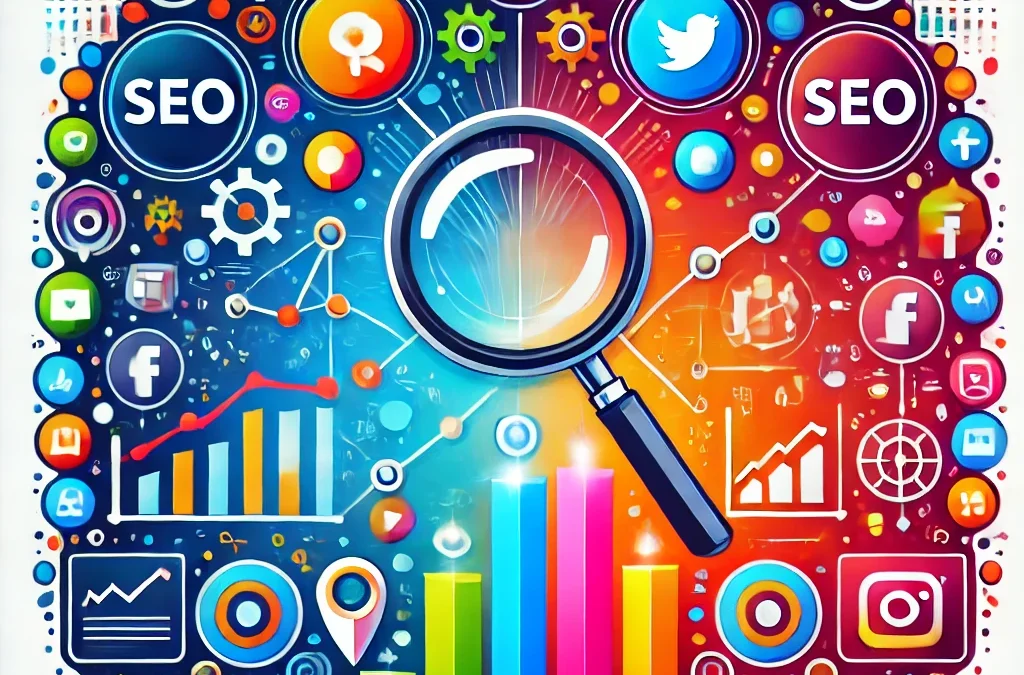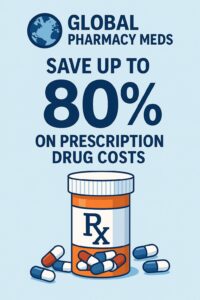SEO vs. Social Media Marketing: Which Strategy is Right for Your Business?
In the ever-evolving digital landscape, businesses need effective strategies to drive traffic, build brand awareness, and generate leads. Two of the most popular and effective methods are Search Engine Optimization (SEO) and Social Media Marketing (SMM). However, deciding which strategy to prioritize can be challenging, as each has its strengths, weaknesses, and specific use cases. Understanding the differences between SEO and social media marketing can help you determine which approach is best suited for your business goals.
In this article, we’ll explore the key aspects of SEO and social media marketing, compare their benefits, and outline how each can contribute to your business’s success.
What is SEO?
Search Engine Optimization (SEO) is the practice of optimizing your website and its content to increase visibility in search engine results pages (SERPs), such as Google or Bing. The primary goal of SEO is to attract organic (non-paid) traffic by improving your website’s rankings for relevant search queries. This involves a variety of on-page and off-page techniques designed to align with search engine algorithms.
Key Components of SEO:
- Keyword Research: Identifying the most relevant and profitable search terms for your business.
- On-Page Optimization: Enhancing elements like meta tags, headers, and content structure for search engines.
- Technical SEO: Improving site speed, mobile-friendliness, and website security to meet search engine requirements.
- Link Building: Acquiring high-quality backlinks from authoritative websites to increase your site’s credibility.
- Content Creation: Producing informative, high-quality content that answers search queries and provides value.
SEO’s primary goal is to drive long-term, sustainable traffic through higher visibility on search engines.
What is Social Media Marketing?
Social Media Marketing (SMM) involves using platforms like Facebook, Instagram, Twitter, LinkedIn, and TikTok to connect with your audience, promote your brand, and engage followers. SMM focuses on building relationships with users by sharing content, fostering discussions, and creating communities around your brand.
Key Components of Social Media Marketing:
- Content Creation: Developing engaging posts, images, videos, stories, and live streams tailored for each platform.
- Audience Engagement: Interacting with followers through comments, direct messages, and user-generated content.
- Social Media Advertising: Using targeted ads to reach specific demographics, interests, and behaviors.
- Influencer Marketing: Collaborating with social media influencers to promote your brand and reach new audiences.
- Analytics & Optimization: Monitoring engagement metrics to refine content strategies and improve performance.
Social media marketing’s primary goal is to build brand awareness, foster engagement, and create relationships with customers.
Comparing SEO and Social Media Marketing
1. Traffic Generation
- SEO: Primarily drives organic traffic from search engines. Once your site ranks well, it can generate steady traffic over time without ongoing promotion. The visitors coming from search engines are usually highly relevant, as they are actively looking for specific information or products.
- Social Media: Generates traffic through real-time engagement. Social media can create immediate spikes in traffic, especially if content goes viral. However, social media traffic tends to be more short-lived, requiring continuous effort to keep the momentum going.
2. Timeframe for Results
- SEO: SEO is a long-term strategy. It often takes months to see significant results, as improving search rankings depends on a range of factors like competition and keyword difficulty. However, once you establish strong rankings, the benefits are long-lasting and cost-effective.
- Social Media Marketing: Social media can provide immediate results, especially with viral posts or paid advertising campaigns. However, the effects can be short-lived unless you maintain consistent posting and engagement.
3. Cost Efficiency
- SEO: While SEO requires an upfront investment in time and resources, its long-term benefits make it more cost-efficient. Once you achieve high rankings, the traffic is essentially free, unlike paid ads. However, maintaining rankings still requires ongoing optimization and content updates.
- Social Media Marketing: Social media platforms increasingly prioritize paid advertising for visibility, which can make organic reach challenging. Paid campaigns require continuous funding to maintain visibility and drive traffic, but they allow you to control the budget and target specific demographics more easily.
4. Audience Targeting
- SEO: SEO primarily targets people actively searching for specific information, products, or services. The traffic generated from search engines tends to be more qualified, as users have clear intent behind their searches.
- Social Media Marketing: Social media allows for highly targeted campaigns based on user demographics, behaviors, interests, and even past interactions with your brand. This makes social media effective for both broad audience reach and niche targeting.
5. Content Longevity
- SEO: SEO-driven content can have a long lifespan. Blog posts, product pages, and other types of content optimized for search engines can continue driving traffic for months or even years with minimal updates.
- Social Media Marketing: Social media content tends to have a shorter shelf life. A post might gain traction for a day or two before being replaced by newer content in users’ feeds. This requires more frequent content creation and consistent engagement to stay relevant.
6. Conversion Potential
- SEO: SEO traffic often comes from users who are further along in the buying process because they are actively searching for solutions. This makes it a highly effective strategy for driving conversions.
- Social Media Marketing: Social media marketing is great for building brand awareness and engaging potential customers in the early stages of the buying process. However, social media platforms are not always designed for immediate conversions, making it a better tool for nurturing leads over time.
Which Strategy is Right for Your Business?
The answer to whether SEO or social media marketing is right for your business depends on your specific goals, industry, and audience. In many cases, a combination of both strategies can deliver the best results. Here are a few factors to consider:
1. If You Want Long-Term Organic Traffic: SEO
If your primary goal is to build sustainable, long-term traffic and drive conversions, SEO is a better fit. It may take time to see results, but the payoff can be substantial as your site begins ranking for valuable search terms and driving continuous traffic.
2. If You Want Immediate Engagement: Social Media
If you want to quickly build brand awareness and engage with your audience in real time, social media marketing is the way to go. It allows for instant interaction and is ideal for businesses that need to get the word out about promotions, events, or new products.
3. If You Have a Limited Budget: SEO
If you’re working with a tight budget, SEO offers a more cost-effective solution. After the initial investment, the ongoing costs of maintaining rankings are lower than running paid ad campaigns on social media.
4. If You Have a Visual Product or Service: Social Media
Social media platforms like Instagram, Pinterest, and TikTok are perfect for businesses with visually appealing products. If you’re in the fashion, beauty, travel, or food industry, showcasing your products with visually engaging content can help attract a large following and build brand loyalty.
Combining SEO and Social Media for Maximum Impact
While SEO and social media marketing each have distinct advantages, they can work together to create a powerful, integrated digital marketing strategy. For example:
- Use social media to promote new blog content and drive traffic to your website, boosting your site’s SEO performance.
- Use SEO to attract new visitors to your website, then engage those visitors on social media platforms to build relationships and increase brand loyalty.
- Use data from social media to inform your SEO strategy, such as identifying trending topics or popular keywords your audience is discussing.
By leveraging both strategies, you can expand your reach, engage your audience at different stages of the buying process, and ultimately drive more conversions.
Conclusion
SEO and social media marketing are both critical components of a modern digital marketing strategy, but their effectiveness depends on your business goals, target audience, and resources. SEO is ideal for long-term growth and organic traffic, while social media marketing excels in building brand awareness and immediate engagement. Instead of choosing one over the other, consider how they can complement each other to create a well-rounded approach that maximizes your online presence.
Whether you choose to focus on SEO, social media marketing, or a combination of both, having a clear strategy in place will help ensure your marketing efforts are aligned with your business objectives and set you up for long-term success.


